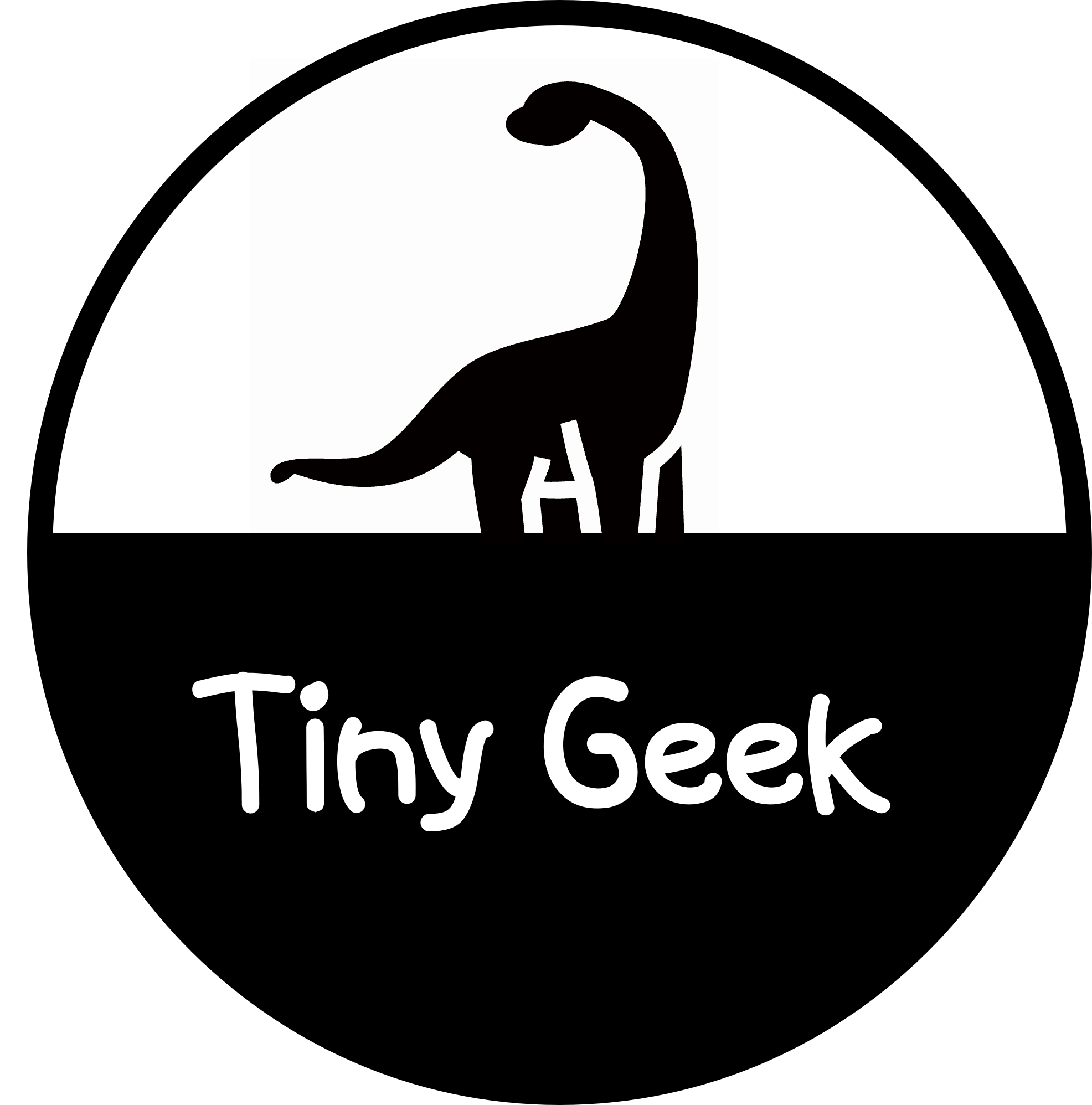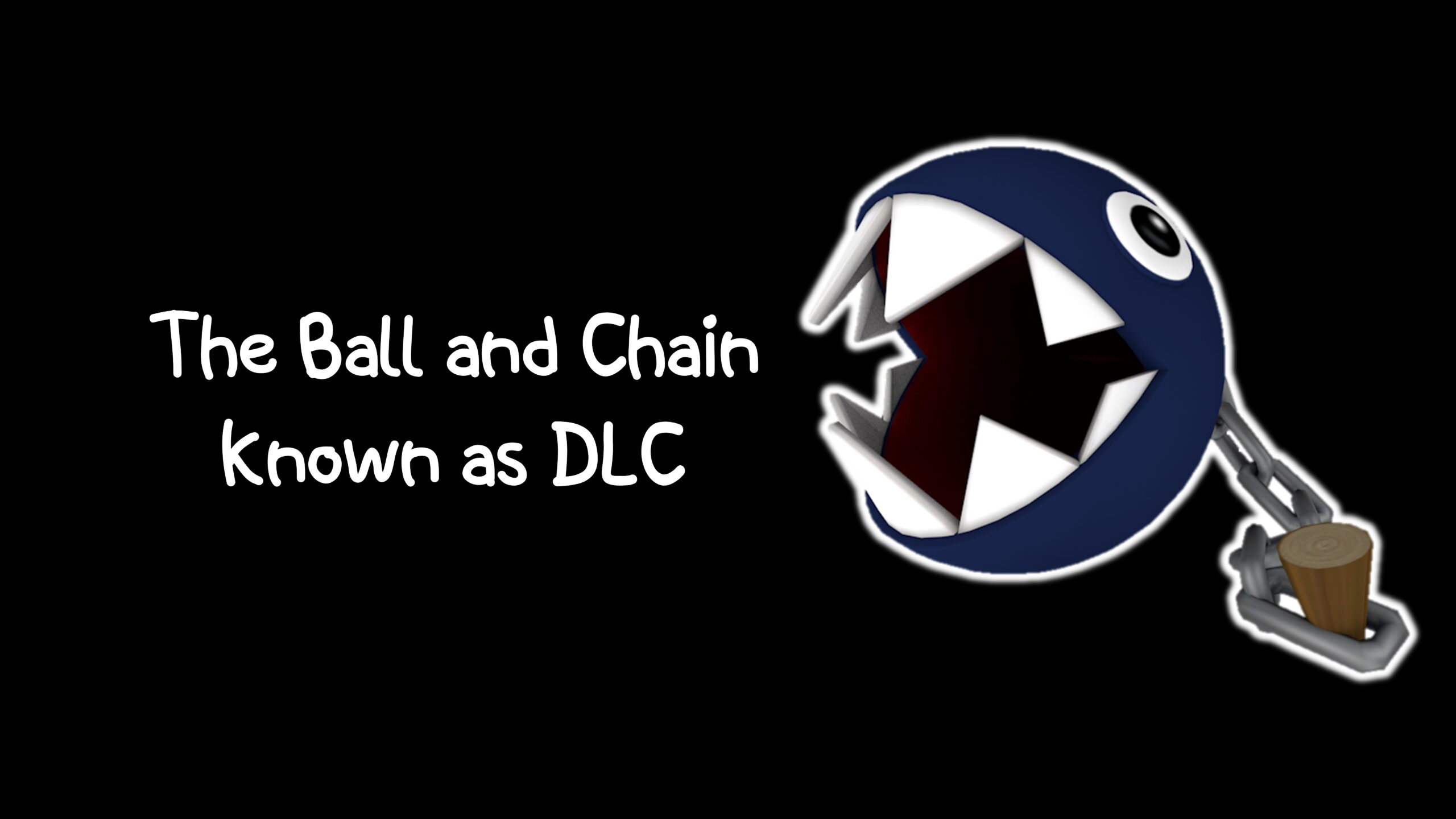The Illusion of value
The Evolution of videogames has been nothing short of extraordinary, with the advent of Downloadable Content (DLC) complimenting video game releases, DLC has become integral pillar of the modern gaming landscape. While DLC has undoubtedly enriched gaming experiences. It has also created a unique challenge for the gamer of today, the challenge of letting go. Here we will touch on the history of DLC, the emotional attachment it fosters in you, and provide practical tips on how to break free of the weight of a digital ball and chain.
Transcending History and the World, a Tale of Souls and Swords Eternally Retold…..
As we journey through the annals of gaming history, DLC has become a commonplace moniker of the modern gamer. Before Xbox Live, The PlayStation Store, The Nintendo eShop, and even Steam, expansion packs dominated the PC gaming space. Amazing titles such as Half-Life Opposing Force, Warcraft II: Beyond the Dark Portal and Age of Empires: The Rise of Rome were adding generous amounts of content to already abundant experiences.
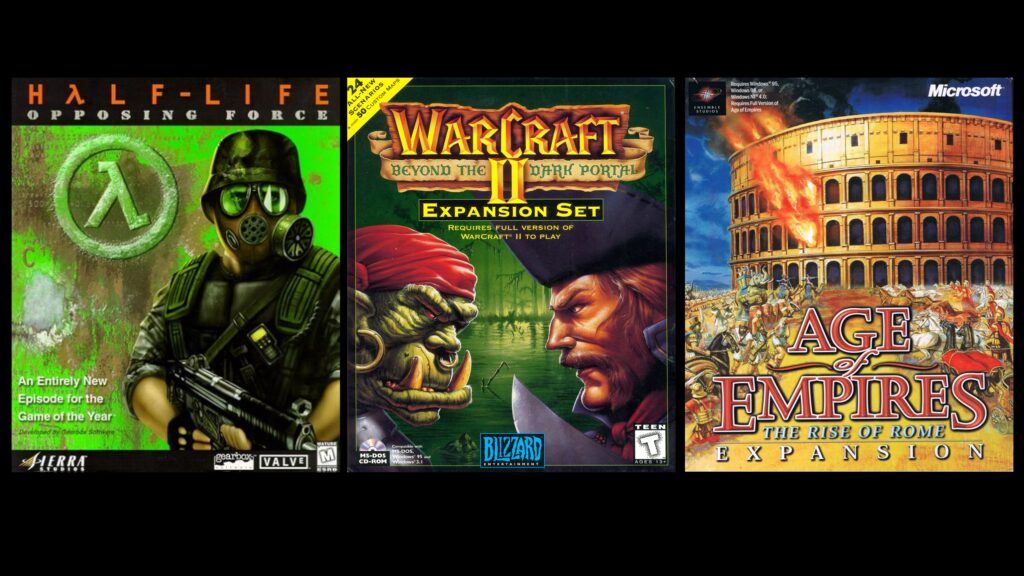
Although DLC had made appearances on consoles with titles such as Phantasy Star on Sega’s Dreamcast and Star Wars Battlefront 2 on Xbox Live, it wasn’t until the 7th generation of consoles that the digital marketplace exposed a broader audience to the concept of expanding their games with paid extra content.
Horse Armour: A Symbol of Change
Enter the infamous “Horse Armour” of The Elder Scrolls IV: Oblivion, a symbol that has transcended it’s original negativity and humour to become a defining moment in gaming consumerism. Bethesda’s audacious move to charge for cosmetic-only armour sparked outrage, yet today such transactions are deemed normal. Today cosmetic DLC is not only accepted but embraced by many gamers, especially by younger generations who have been moulded by growing up in a world with DLC as a standard ‘feature’ of video games.
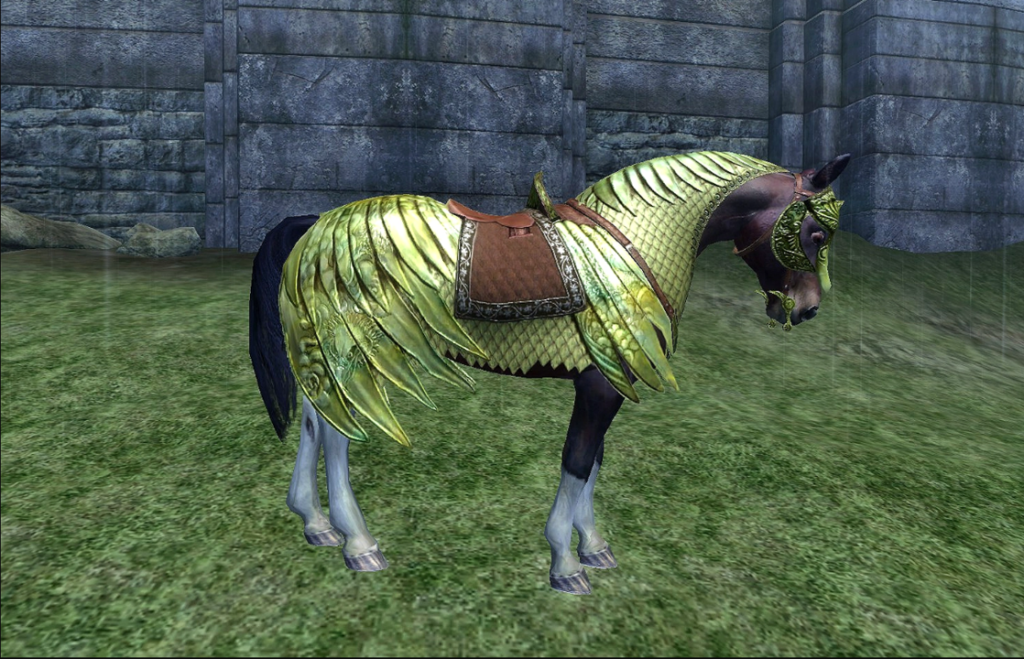
While traditional expansions still exist with games like Mario Kart 8 Deluxe’s Booster Course Pass or Monster Hunter Rise’s Sunbreak. Many modern gamers have developed a warped perception of DLC value. The emphasis on aesthetics often overshadows functionality and the intrinsic “fun” value. The shift from actual enriching content to mere embellishments highlight the changing dynamics of DLC on both the gaming industry itself and the consumer themselves.
The Red Ring that Ignited an Intergalactic Adventure
I take very good care of my gaming consoles, my original launch day PlayStation 2 still functions to this day but In 2012, a pivotal moment disrupted this streak. The now infamous Red Ring of Death claimed my Xbox 360. Out of warranty, I acquired a replacement console which happened to be bundled with the recently released Mass Effect 3.
Despite my love for sci-fi movies and games, nonlinear RPGs with long haul storylines and myriads of branching paths and sidequests feel more like work than play for me most of the time. Linear games like Halo or Gears of War are generally my go to. Ironically of course due to my many adventures in the preowned section of EB games, I owned Mass Effect 1 and 2 already. I just never got around to playing them. The Mass Effect 3 hype online admittedly had me excited to give it a go, so I did, Into the disc tray Mass Effect 1 went and I started to play it.
Were the planets aligned? Was it the right atmospheric pressure? I was unsure
What I was sure about, was that Mass Effect had it’s claws in me.
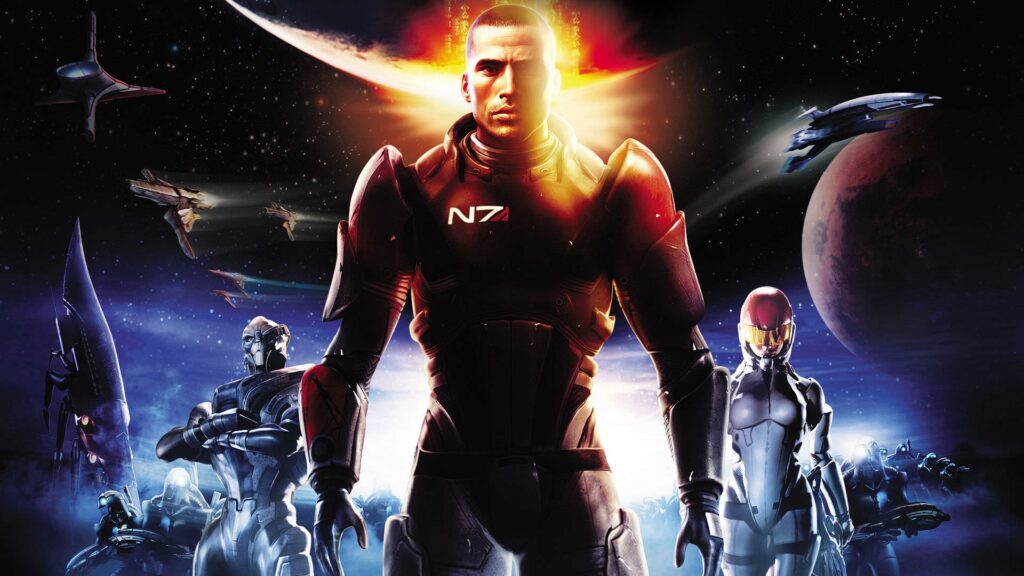
I became obsessed with the Mass Effect Universe, I was exploring the expanded universe of the comics and novels. I Imported my character across the trilogy and played all three titles back-to-back, I was so invested I even purchased and played all the DLC for the games, The adventures on the Normandy are permanently etched into my gaming memories.
However I’ve never replayed Mass Effect, and honestly I don’t think I ever will.
The Unseen Shift in Perspective, I had the Keys all Along
As the years passed, a subtle shift was occurring in my perspective of my gaming collection, It wasn’t a midlife crisis, I had stability, a loving wife, a home of my own, yet, every year, time started to feel different, I began to reassess my relationship with games and the Mass Effect Trilogy was at the forefront of a burgeoning purge.
Mass Effect stands a testament of how epic it truly was as I have nothing but positive memories for it, however my gaming preferences have changed and evolved over the years. While I could quite happily replay a linear adventure like Uncharted or the corridor action of Medal of Honor over and over again. I realised I really value shorter, linear experiences. To the point where an open world or RPG game used to occupy a lot more of my time, now has become a once or twice a year event for me.
I looked at my Mass Effect Collection, essentially dormant for a decade. I thought to myself, A DECADE that’s an insane amount of time for a bunch of books, comics and games to just sit on the shelf doing nothing. Selling them crossed my mind instantly, but I was stricken with doubt. I own all that digital content, the amazing Lair of the Shadow Broker from Mass Effect 2 or The Citadel from Mass Effect 3….
Considering the value derived from the DLC became a pivotal moment. While it had contributed and complimented my Mass Effect experience at the time, the question arose – was that one time value enough?
As a Collector, it clashed with my very nature. Is it possible that some games could be just one time experiences for me?
It felt wrong to think this way.
Did I really need to own and physically hold onto my Mass Effect games just because I had such rich DLC experiences I have paid for? It seemed like radical thinking, but the more I thought about it this way, maybe it wasn’t so crazy after all.
Are you Embracing Nostalgia or Smothering it?
In the vast realm of gaming, nostalgia plays a vital role for both the creators of video games and the consumers themselves. There is a delicate balance between embracing it and clinging onto it out of fear of loss. Many modern gamers find themselves shackled to investments due to the economic cost or their emotional attachment to the memories created by playing it in the past.
How Heavy is a Sunk Cost Fallacy anyway?
Whether it takes the form of a cosmetic costume refreshing your roleplaying game, additional maps elevating your First Person Shooter experience, or new characters filling out your fighting game roster, DLC wears various guises. Some are purely aesthetic, while others contribute functional elements, varying in size and scope – with expansions like Monster Hunter World’s Iceborne standing as a substantial counterpart to the core game. Yet, irrespective of the value they add to the experience, they all share the same weight, not one made of pixels and gigabytes but an emotional weight that is shackled to you.
The Keys to the Shackle, How to let go of the Ball and Chain
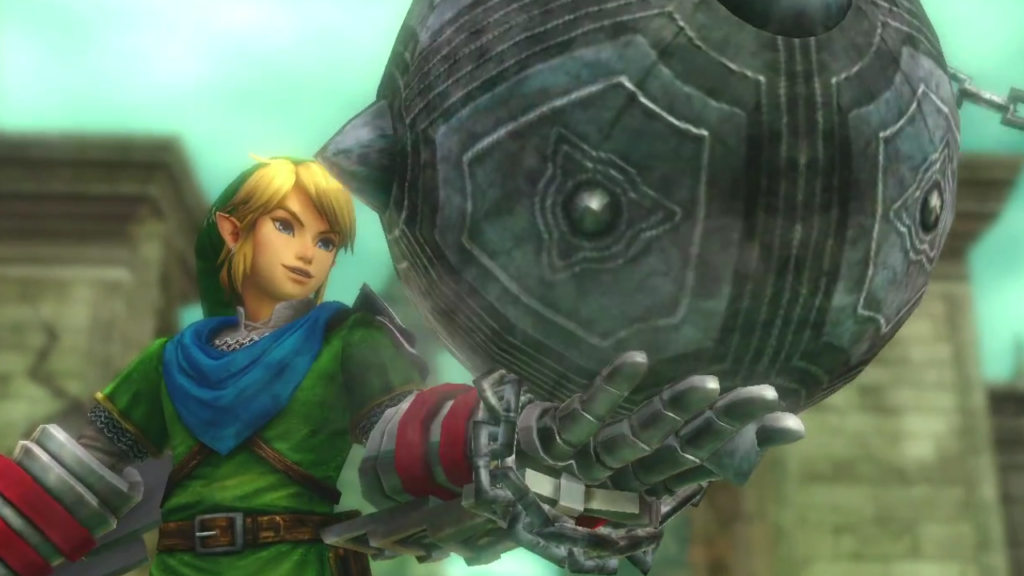
1. Don’t feel obligated to previous investments
It’s natural to feel attached to games, especially those for which you have purchased DLC for. However it’s crucial to recognise just like games change over time, people do too, your preferences and priorities change. Don’t let the fear of losing your investment, dictate your gaming choices. Remember that your time and enjoyment are valuable.
A common occurrence I witness and share with many gamer is that more often than not, you cognitively purchase a game for it’s potential enjoyment. You know you aren’t going to play it this weekend, but I’ll play it “in the near future for sure”. In the pile of shame it goes. The same attributes can be carried over to DLC, deep discount digital store sales puts these thoughts of potential enjoyment into overdrive. Next you are ‘investing’ in enriched worlds and narratives you haven’t even started to explore let alone made an opinion on.
2. Don’t eat the dessert before the main
You can combat the urge to buy DLC for a game by likening it to a meal, finish your main before ordering desert. Do you want to eat your entire main before you order desert, because what if you are full? What if you don’t have enough time to eat the dessert? What if something changes and you can’t eat that dessert anymore? Thinking about it in this way allows you to make smarter decisions for your game library.
3. A Purchase isn’t a Promise
It’s perfectly natural to feel attached to a game that you have purchased DLC to. However, recognizing that your gaming preferences and your personal priorities evolve is a crucial mindset to have. Fear of losing your ‘investments’ and not relinquishing them due to potential economic gain or emotional attachment is akin to keeping a moulding piece of fruit in your house you never truly intended to eat in the first place.
4. Relish the memories
Just because you’ve played and enjoyed a DLC in the past doesn’t mean you’re obligated to replay it out of guilt. Gaming experiences are like cherished memories, and while revisiting them can be delightful, it’s perfectly okay to acknowledge that your preferences may have shifted. Allow yourself the freedom to explore new adventures without the burden of feeling tied to past enjoyment. Remember, each gaming session is a unique opportunity for joy, and there’s no need to cling to the past at the expense of discovering fresh and exciting content.
5. Change your perspective
View your gaming journey as a dynamic leveling system. Just like characters in your favorite games grow and evolve, so do you. Recognize that parting ways with certain games, even those with cherished DLC, is a natural progression in your gaming narrative. Each new release and experience adds to the richness of your gaming “character.” Embrace the idea that letting go isn’t a loss, but rather a step towards unlocking new levels of enjoyment and discovery in the ever-expanding world of gaming. Absorb knowledge of worlds, game design, audio, and gameplay and let that knowledge compliment your appreciation for experiences on other games whether new or replaying a tride and true classic in your collection.
Try this experiment: Uninstall and Reflect
Do you truly know the weight of your DLC? To fully understand it’s impact on you, find a game in your collection, one of those ‘I’ll play it eventually’ games, the one with all the updates and DLC installed from that “complete” edition you purchased in that sale ages ago.
Now uninstall it
How do you feel?
Do you feel regret, or has a weight come off your shoulders? As the gaming landscape continues to evolve, so should your approach to gaming. Letting go of games, especially those with lingering DLC, is not a loss; it’s a strategic decision you have made to take control and level up your gaming experience. Embrace change, prioritize the joy of discovery, and relish the freedom that comes with a gaming library with less. In a world where the gaming industry’s convergence on making DLC a ball and chain tethering you to their product feels like the only constant, your gaming choices should always be dynamic.
